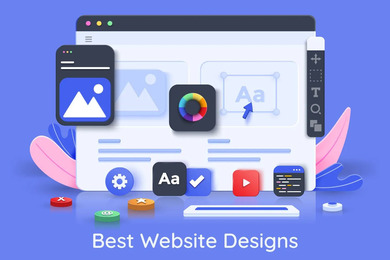
Web Design: An Online Avenue for Earning
In an era where the internet drives many facets of our lives, having a robust online presence is crucial for any business or individual looking to make a mark. This is where the realm of web design comes in, offering a lucrative method to make money online.
Who is a web designer?
A web designer is an expert responsible for designing and creating the visual elements of a website. They’re the maestros behind the aesthetics, layout, and overall look and feel of a site. Combining artistic talent with technical skills, a web designer ensures that a website is not only visually appealing but also user-friendly and functional.
Web design directions
Web design is not a monolithic profession; there are various specialties and directions within it. Some of them include:
- UI Design: Focuses on the user interface, ensuring that the site is intuitive and easy to navigate.
- UX Design: Concentrates on the user experience, ensuring the website offers a positive and seamless experience.
- Responsive Design: Ensures that websites are optimized for various devices, from desktops to smartphones.
- Graphic Design: Focuses on visuals, typography, colors, and overall aesthetics.
- Interaction Design: Involves creating engaging interfaces with logical and thought-out behaviors and actions.

How much does a web designer earn?
The earning potential of a web designer varies widely based on experience, specialty, and geographical location. On average, an entry-level web designer might earn between $35,000 to $50,000 annually. However, with experience, a portfolio that showcases skill, and perhaps specialization in areas like UI/UX, the earnings can shoot up, often exceeding $100,000 for seasoned professionals. Freelancers might earn anywhere from $50 to $150 per hour based on their expertise.
Web designer soft skill
While technical know-how is paramount, a successful web designer also needs a suite of soft skills:
- Communication: To understand client needs and convey design ideas effectively.
- Empathy: To understand the end user’s perspective and design with their needs in mind.
- Problem Solving: Websites often come with challenges that require innovative solutions.
- Time Management: Especially vital for freelancers juggling multiple projects.
- Continuous Learning: The digital world is ever-evolving, and staying updated is crucial.
In essence, web design offers a potent mix of creativity and technology, presenting a viable method for making money online. As businesses and individuals increasingly understand the value of a strong online presence, the demand for skilled web designers is only set to rise.
